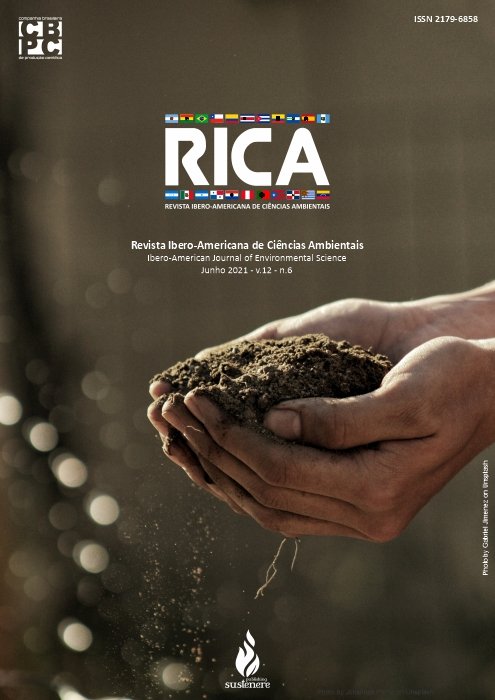Identification of organic compounds in leachate from landfill during treatment by fenton process
DOI:
https://doi.org/10.6008/CBPC2179-6858.2021.006.0023Keywords:
Leachate, Fenton process, Organic compoundsAbstract
Leachate is one of the by-products of biological decomposition of solid urban waste, being generated inside landfills. Its composition is directly related to age and to the characteristics of the solid waste disposed in it. Older leachate have a high polluting potential, due to the high concentration of less degradable organic material, inorganic macro pollutants, heavy metals and organic xenobiotic compounds, making biological treatment is not viable. The present study aimed to evaluate the effectiveness of the Fenton process in the treatment of leachate from the landfill in Puxinanã-PB, for this purpose the characterization of leachate "in natura" (LIN) and effluent Fenton (EF) was conducted, physical-chemical parameters and identification of organic compounds using gas chromatography coupled with mass spectrometry (CG-EM). The results showed that the Fenton process provided an average removal efficiency of 87% total COD, 98% true color, 74% COD and 70% BOD5. The BOD5/total COD ratio of leachate treated by the Fenton process increased by a percentage of 100%, when compared to LIN. The Fenton process removed 80% from the organic compounds identified in LIN, of the 29 compounds that remained in EF, some are known to be toxic with chlorine benzene, bisphenol A, ethyl benzene and 1-ethyl-2-methyl-benzene. It was also verified that 50 new organic compounds are formed as by-products of the oxidation of the Fenton process.
Downloads
Downloads
Published
Issue
Section
License
Copyright (c) 2021 Ibero-American Journal of Environmental Sciences

This work is licensed under a Creative Commons Attribution-NonCommercial-NoDerivatives 4.0 International License.
The CBPC - Companhia Brasileira de Produção Científica (Brazil CNPJ: 11.221.422/0001-03) the material rights of the published works. The rights relate to the publication of the work anywhere in the world, including rights to renewals, expansions and dissemination of the contribution, as well as other subsidiary rights. All electronically published works may subsequently be published in printed collections under the coordination of this company and / or its partners. The authors preserve the copyright, but are not allowed to publish the contribution in another medium, printed or digital, in Portuguese or in translation.









